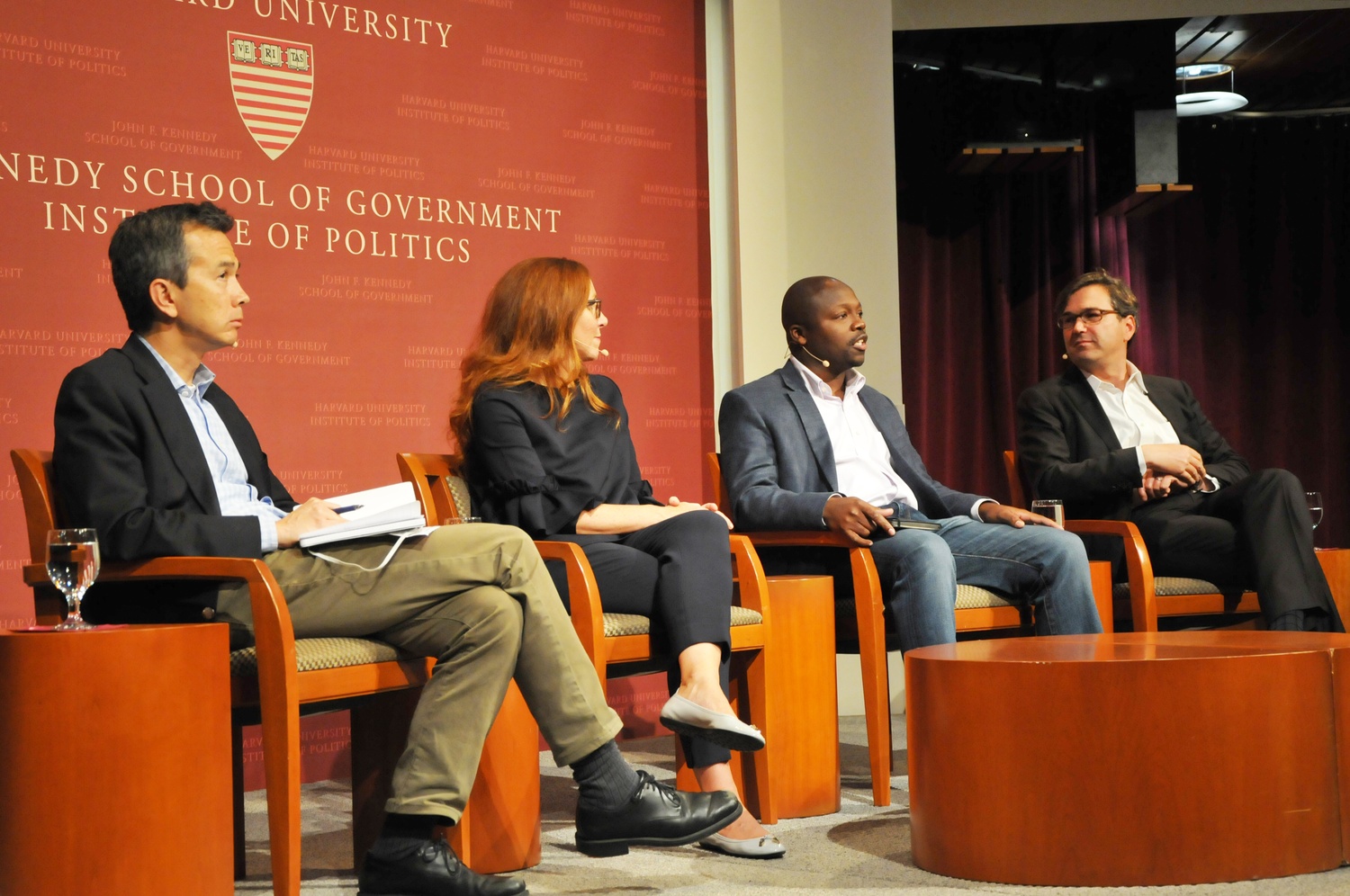
News
Harvard Alumni Email Forwarding Services to Remain Unchanged Despite Student Protest

News
Democracy Center to Close, Leaving Progressive Cambridge Groups Scrambling

News
Harvard Student Government Approves PSC Petition for Referendum on Israel Divestment

News
Cambridge City Manager Yi-An Huang ’05 Elected Co-Chair of Metropolitan Mayors Coalition

News
Cambridge Residents Slam Council Proposal to Delay Bike Lane Construction
Panelists Strike an Optimistic Tone on Artificial Intelligence

Artificial intelligence will likely transform the American economy—but not necessarily for the worse, technology leaders and economic experts agreed at the Institute of Politics Thursday.
The forum, called “Will You Still Have a Job When the Robots Arrive?”, featured Google senior counsel Wilson White, IBM “AI Ethics Global Leader” Francesca Rossi, and Kennedy school professor Jason Furman, the former Chairman of the Council of Economic Advisors. Wall Street Journal commentator Greg Ip, who moderated the discussion. challenged the panelists to examine whether AI is in fact an unprecedented technological advance or merely the next step in a longstanding trend toward automation.
“We shouldn’t assume that the headlines we read … ‘Robots are going to take our jobs’… are in fact true,” White said. “These headlines go back to 1800.”
Rossi also emphasized that AI is not a new concept. She pointed to GPS technology as “an algorithm that’s in every AI textbook,” though many people wouldn’t immediately associate the mapping technology with with artificial intelligence.
Furman said he believes AI will ultimately have a positive impact on the economy.
“Ninety percent of what humans did in the year 1900 is now done by machines,” he said. “You invent new technologies, those new technologies create new kinds of jobs, but they also make us richer.”
Furman pointed out that the unemployment rate today is similar to what it was in 1901. White also suggested job losses from AI could be offset by new occupations.
“I absolutely think we should be optimistic,” White said. “I think we have new types of jobs. For example, at Google, we have a whole team that’s AI researchers.”
Furman said that AI is much more likely to displace low-skill, low-wage jobs.
“The higher you are on the education scale, the more likely you’ll be a complement to AI than be substituted by it,” he said. “We need a much better social safety net,” he added.
Citing a Google machine learning system that can detect early forms of diabetic retinopathy, White said that artificial intelligence could also significantly improve aspects of healthcare.
In any case, Rossi said, AI would bring about a “big transformation” in the economy.
“I want to stress the word ‘transformation,’” Rossi said. “The advice to policy makers is to collaborate...to really understand how and what needs to be regulated and with what mechanisms.”
Rachel Y. Hong ’21 said she enjoyed the panel’s discussion of both computer science and public policy issues.
“The fact that it was so interdisciplinary was fascinating to me,” she said.
Want to keep up with breaking news? Subscribe to our email newsletter.
